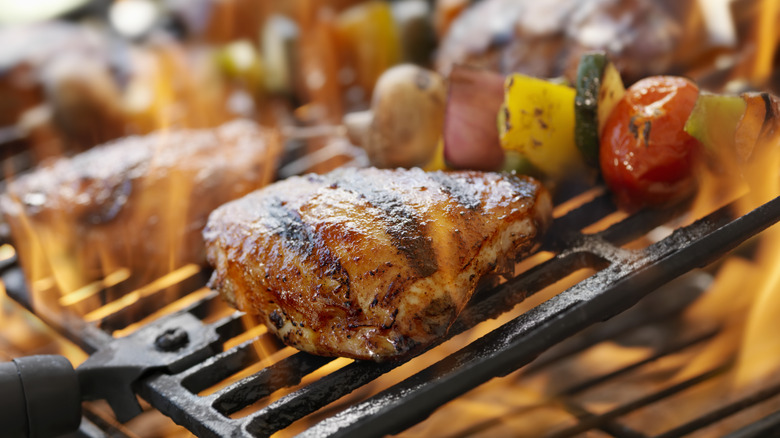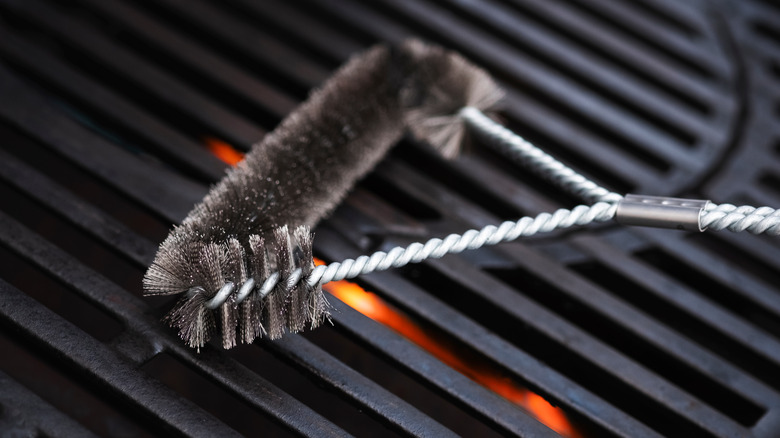The Big Mistake An Expert Chef Avoids With Personal Hibachi Grills
When most people think of hibachi grilling, they envision a massive iron slab — so big the whole family can sit around it — and a showy chef with a slew of fun tricks up their sleeve (and, most likely, in their hat, too). However, that is actually teppanyaki-style cooking. The difference between teppanyaki and hibachi is that the latter is done on a small cast iron grill heated with charcoal. Because the charcoal adds to the smoky, flame-grilled flavor, and the cast iron works to quickly and efficiently sear meat, hibachi grills have become popular among avid home grillers. But if you're going to use a personal hibachi grill, chef Steve — owner of Chef Steve Creations – points out that it will require a little pre- and post-cooking TLC.
"One of the biggest mistakes people make is a lack of maintenance," chef Steve, who specializes in mobile hibachi, tells Mashed. "It's important to take care of your griddle and clean it properly between uses to prevent rusting, especially if it's stored outside," he adds.
Because hibachi grills are made from cast iron, when the material is introduced to moisture and oxygen then it's susceptible to oxidation, which can cause the grill to rust. Not only can this compromise the structural integrity of the grill, but it can also affect the taste of the food. For that reason, chef Steve says there are specific cleaning protocols you should implement when cleaning your personal hibachi grill.
Clean, season, and cover!
Even big names like Andrew Zimmerman use a hibachi grill to elevate outdoor parties, and so can you! But it's imperative that you know how to appropriately clean it. "It's recommended to avoid using commercial cleaning products and instead use fresh lemons while the grill is hot to clean it effectively as the acid helps break up the grease," says chef Steve.
Additionally, a grill scrubbing brush can be used to slough off any lingering bits of food. "Once you've finished cleaning the grill, it's best to cover it to prevent excess exposure to air and moisture," says chef Steve, adding, "This will help prolong the life of your griddle and ensure it stays in good condition for future use."
What's more, in the same way properly seasoning your cast iron skillet works to keep rust at bay, seasoning your cast iron grill grates can add a further layer of protection from moisture. This involves coating the grates in a layer of fat or oil, turning up the heat (just not past the oil's smoking point), and allowing the fat to bind to the metal. This will act as a protective shield from environmental factors that could lead to rust.

